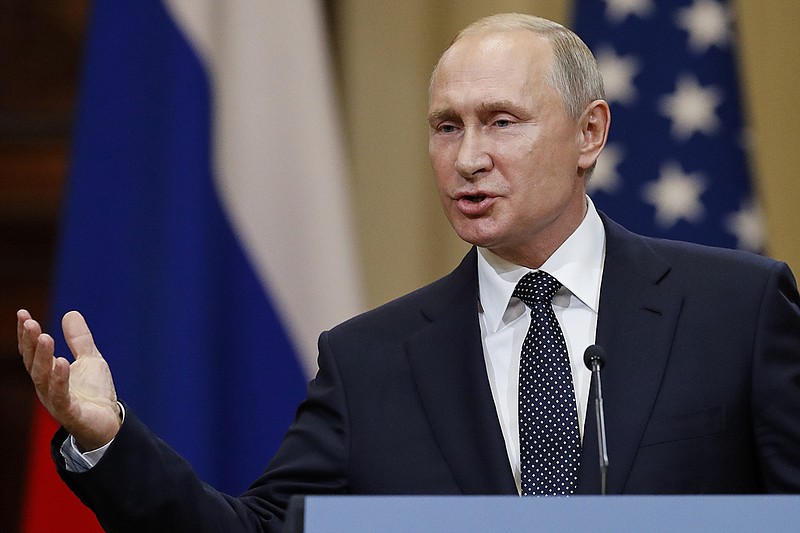WASHINGTON - Looking at Russia's competing spy services, their overlapping operations against the U.S. and their sometimes careless tradecraft, some CIA veterans are wondering if the Russian spooks actually want to get caught.
The truth is, President Vladimir Putin probably doesn't mind that his intelligence activities are so blatant that they're a subject of daily public debate. His goal isn't to steal secrets but to destabilize America's political system.
"Russian intelligence activities over the past several years have become not only more energetic, but more eclectic," explains former CIA Director John Brennan in an email. "It's a diverse, entrepreneurial and frequently competitive ecosystem. Some of their work is really, really good, showing exquisite tradecraft. Other stuff, not so much."
The new freewheeling, anything-goes style is evident in Russia's 2016 assault on the U.S. political system. The Kremlin attacked from three directions: GRU military intelligence, the FSB security service, and a social-media troll farm known as the Internet Research Agency, managed by one of Putin's oligarch pals.
The Russians floated their covert-action propaganda through Facebook, Twitter, WikiLeaks and other social-media outlets. Who knows whether there was "collusion," but Russian officials maintained contact in 2016 with a string of Donald Trump associates, high and low, in ways the FBI couldn't miss.
Moscow monitored public speeches, not dead drops. According to the Justice Department's July 13 indictment of 12 GRU operatives, the Russian conspirators began hacking Hillary Clinton's personal emails "after hours" on July 27, 2016. Earlier that day, Trump had proclaimed: "Russia, if you're listening, I hope you're able to find the 30,000 emails that are missing."
Putin was shaped by the KGB's rigid bureaucracy and tight secrecy. But as Russia's president, he has embraced a different operating model - looser, more fragmented, with different services competing for the leader's favor. The old KGB was broken into two pieces starting in 1991: the SVR, which inherited the foreign spying mission Putin had served, and the FSB, which took over domestic security.
The FSB has become increasingly involved in foreign operations and may now overshadow its twin, said Michael Sulick, a Russia expert and former CIA operations chief, in an interview. The FSB probably ran the "Cozy Bear" hack of the Democratic National Committee in 2015.
The GRU, traditionally the most adventurous wing of Russian intelligence, now appears to be resurgent after costly mistakes in the 2008 Georgia war. Ukraine has been "the perfect showcase" for the GRU's covert insurgency tactics, wrote Mark Galeotti, an expert on Russian intelligence, this month. He sees the GRU's hand in the 2014 annexation of Crimea and shootdown of a Malaysia Airlines jetliner; the 2016 intervention in U.S. politics; and the attempted assassination this March in Britain of Russian defector Sergei Skripal.
An intriguing example of Russia's new generation of spycraft is the case of Maria Butina, who was indicted by the Justice Department this month for plotting a covert influence campaign that partly targeted the National Rifle Association. The indictment alleges that she was run secretly by a Russian official who had served in parliament and the Central Bank.
When Butina was photographed near the U.S. Capitol on Inauguration Day, her alleged Russian handler messaged approvingly: "You're a daredevil girl," according to court papers. Three months later, when Butina's American contacts were outed in the media, her alleged handler wrote: "How are you faring there in the rays of the new fame? Are your admirers asking for your autographs yet?"
This is not your grandfather's KGB. Putin is running a multiplatform spy service for the internet era - as quick, disposable and potentially devastating as a Snapchat image.
Washington Post Writers Group
